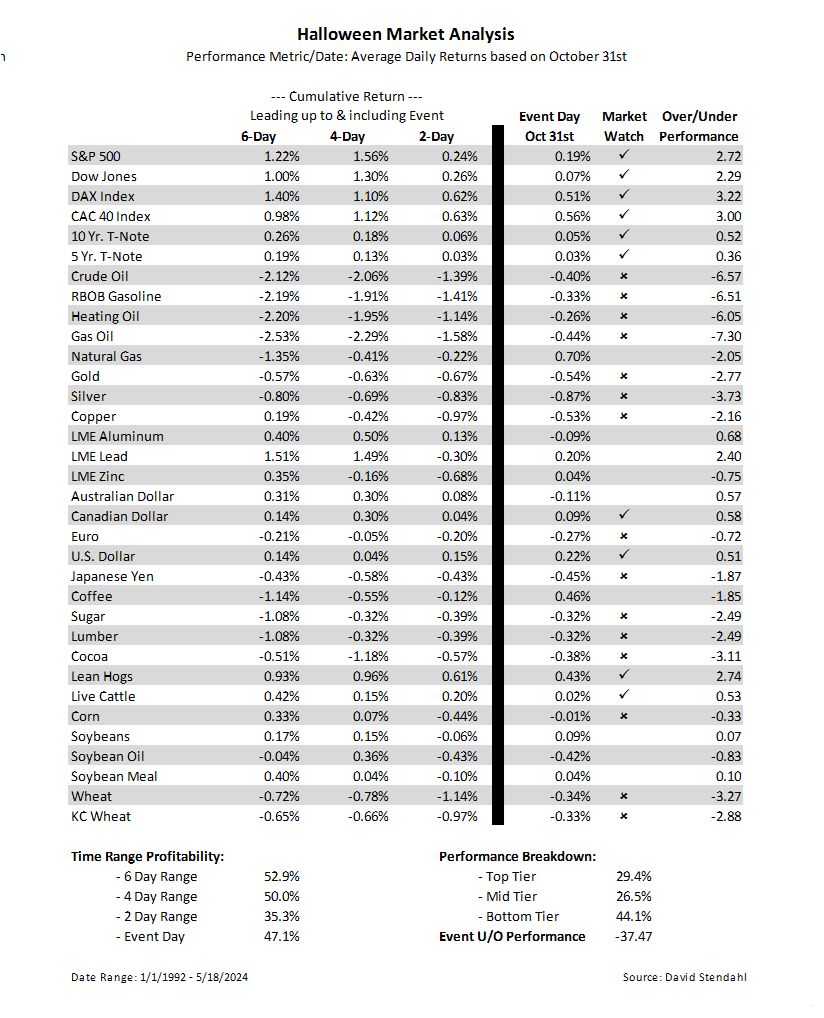Event: Halloween
Halloween’s origins date back 2000 years to the ancient Celtic festival of Samhain. This day marked the end of summer and the harvest and the beginning of the dark, cold winter, a time of year that was often associated with human death. Celts believed that on the night before the new year, the boundary between the worlds of the living and the dead became blurred. On the night of October 31, they celebrated Samhain, when it was believed that the ghosts of the dead returned to earth. Borrowing from European traditions, Americans began to dress up in costumes and go house to house asking for food or money, a practice that eventually became today’s “trick-or-treat” tradition. [1]
The questions is … do the markets prefer a trick or treat heading into Halloween?
Market Comparision
How do the markets perform leading up to and including Halloween? The analysis table below breaks down each of the 30+ markets into four separate trading periods. These time frames span 6-days, 4-day, 2-days, and the event day itself. The return performance for each time frame is measured against its normal performance during the year to calculate a final over or underperformance return. This metric quantifies, in percentage points, the advantages or disadvantages associated with Halloween. Markets highlighted with a checkmark or an “x” should be closely monitored for potential strength or weakness heading into the event.

Calendar Breakdown by Events
All trading involves risk. Leveraged trading has large potential rewards, but also large potential risk. You must be aware of the risks and be willing to accept them in order to invest in the futures and options markets. Don’t trade with money you can’t afford to lose. This is neither a solicitation nor an offer to Buy/Sell futures or options. No representation is being made that any account will or is likely to achieve profits or losses similar to those discussed. The past performance of any trading system or methodology is not necessarily indicative of future results.
Our strategies have not been developed based on knowledge of or with reference to your particular circumstances, such as financial position, goals, risk-reward preferences, tax situation, brokerage arrangement, investment or trading experience, and so forth. Hence no content or model published here constitutes a recommendation that any particular security, portfolio of securities, transaction, or investment strategy is suitable for any specific person. You alone are solely responsible for determining whether any investment, security or strategy, or any other product or service, is appropriate or suitable for you based on your investment objectives and personal financial situation. More
